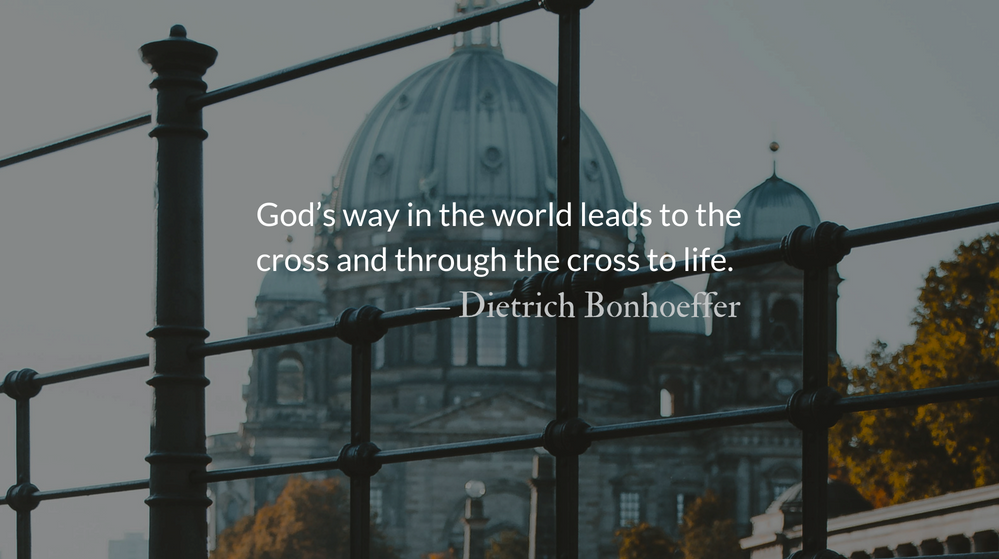Scripture: Matthew 20.25-26
Jesus called them together and said, “You know that the rulers of the Gentiles lord it over them, and their high officials exercise authority over them. Not so with you. Instead, whoever wants to become great among you must be your servant.”
Reflection: Prayer as Vocation
By John Tillman
In his book, Letters to Malcolm, Chiefly on Prayer, C.S. Lewis complains that he finds it ironically unhelpful to turn into a church for midday prayers.
There always seems to be someone practicing the organ or noisily going about cleaning and mopping. “Of course, blessings on her,” Lewis says. “‘Work is prayer,’ and her enacted oratio is probably worth ten times my spoken one.”
We have not held tightly to the concept of work as prayer. We see work as occupation—something that takes time we would spend elsewhere. Christians have the unique opportunity to see work as vocation—choosing to give to others on behalf of Christ.
To some, it might be a surprise that one of the primary definitions of the word “vocation” is a divine calling. One does not have to be a staff member of a church or an employee of a Christian ministry (or even a volunteer, noisily cleaning up the sanctuary and disturbing an Oxford don’s prayers) to turn grudging occupation into prayerful vocation.
One prominent example of prayerful, secular work is Fred Rogers. Despite the lack of overt religious expression on his show, Mister Rogers was an ordained minister whose specific assignment was to serve children and families through mass media. And serve them he did.
Paying tribute to Rogers’ on NBC Nightly News, reporter Bob Faw said, “The real Mister Rogers never preached…he never had to.” Following his spiritual calling in no way interfered with Rogers becoming one of the most successful and respected television professionals of all time.
For every believer, the gospel is our vocation. We learn to express it through our occupations.
Rogers’ spiritual discipline and sensitivity to the Holy Spirit made his show a vehicle for the gospel without explicit language of faith. Many of our readers work in faith-negative environments where faith is unwelcome, but that doesn’t mean each action can’t communicate a gospel-filled love to others.
In our careers we have a choice between the drudgery of meaningless tasks and the honor of serving others around us in Christ’s name. If we need a picture of what that looks like, it may be helpful to us to turn on an episode of the neighborhood.
May we make our work our prayer.
By every action may we pray for our co-workers, for our customers, for our city, and for our world.
Prayer: The Refrain for the Morning Lessons
Yours are the heavens, the earth is also yours; you laid the foundations of the world and all that is in it. — Psalm 89.11
– Prayer from The Divine Hours: Prayers for Springtime by Phyllis Tickle.
Full prayer available online and in print.
Today’s Readings
Jeremiah 6 (Listen – 5:10)
Matthew 20 (Listen – 4:22)
Additional Reading
Read More about Praying Through the Stress of Work
In his journals Jonathan Edwards reveals the way his spiritual life is burdened by stresses of his vocation.
Readers’ Choice
In August we will look back at our readers’ favorite posts of the year. Submit a Readers Choice post
Tell us about a post and what it meant to you. What post helped you connect faith to your work?











